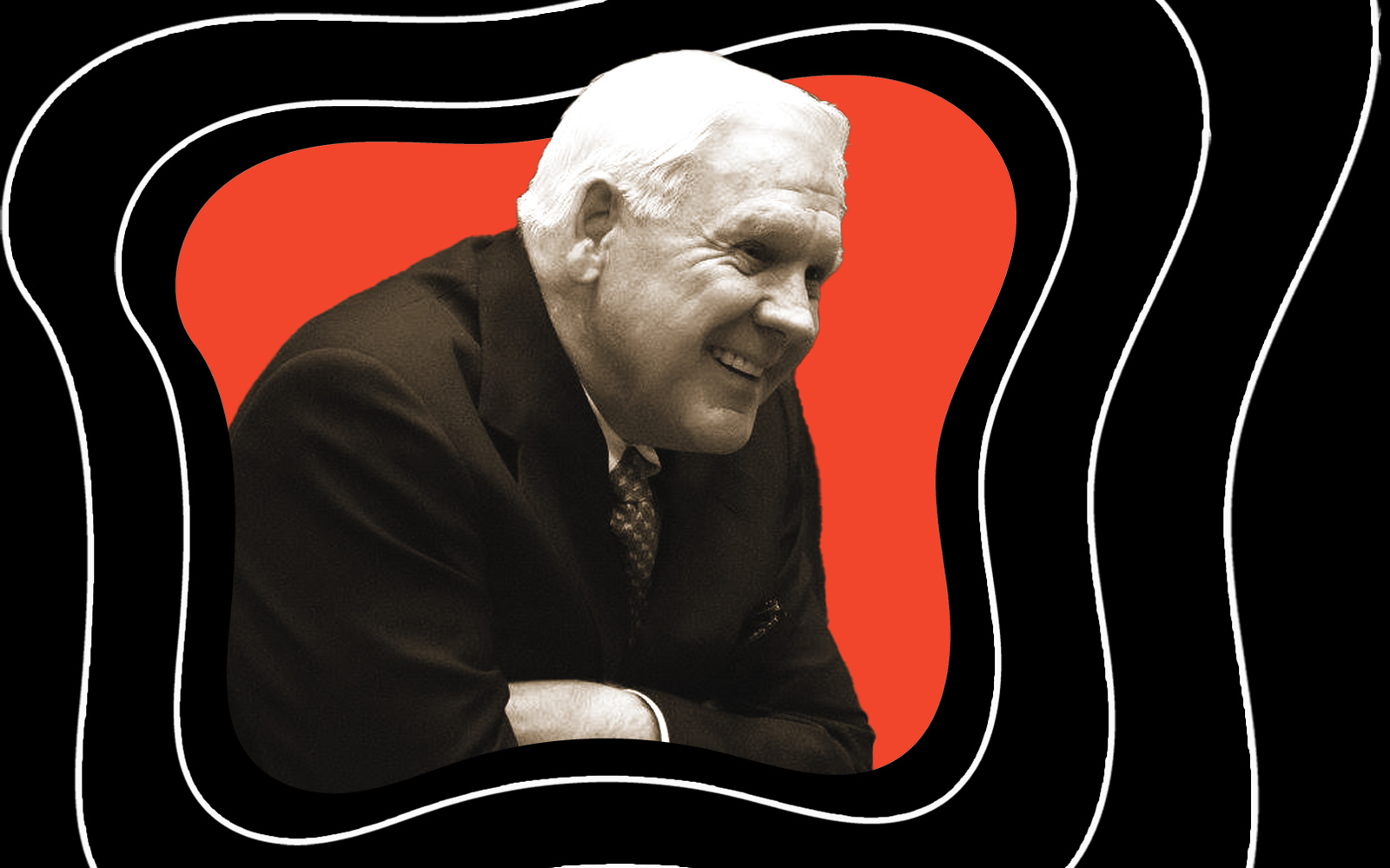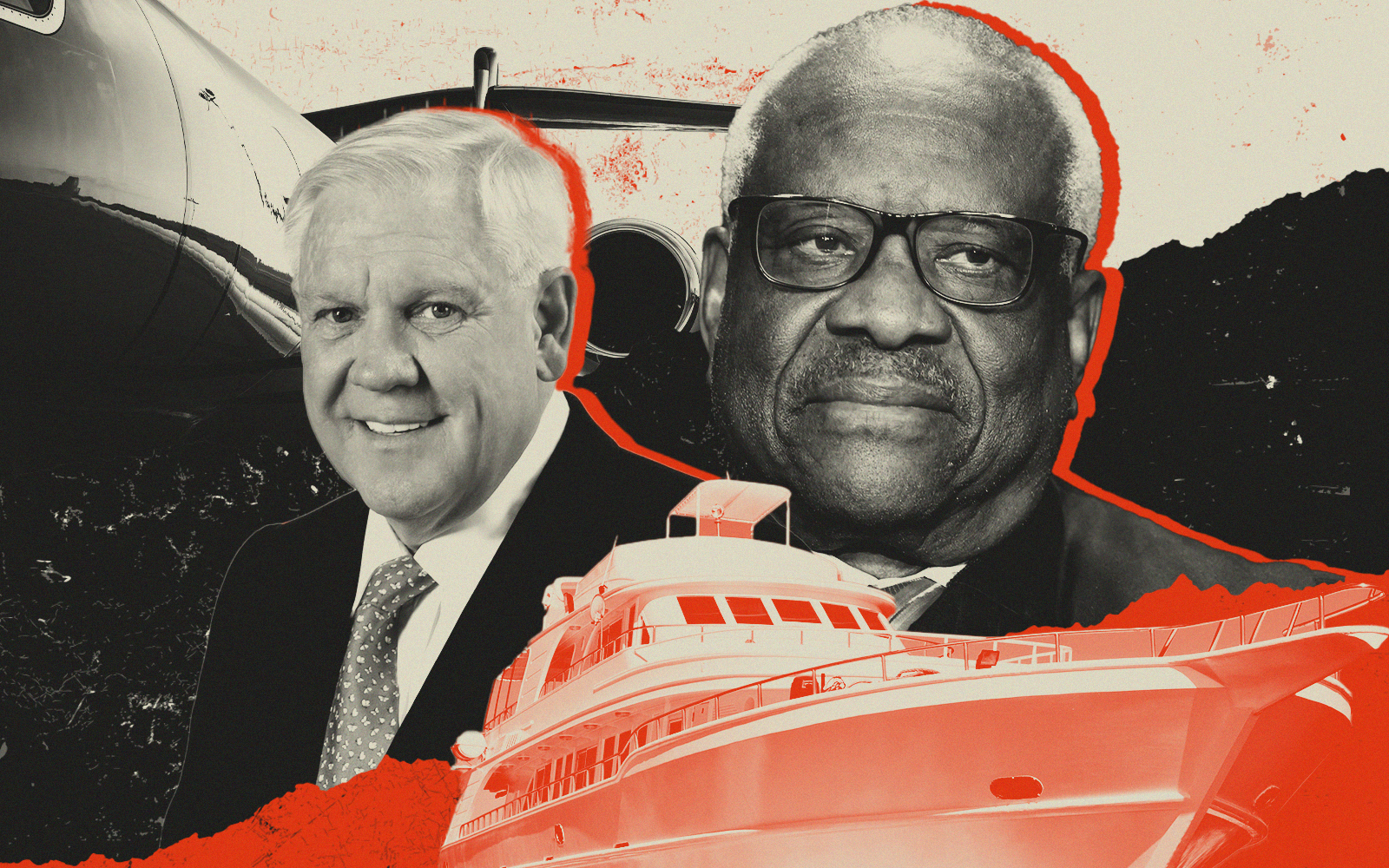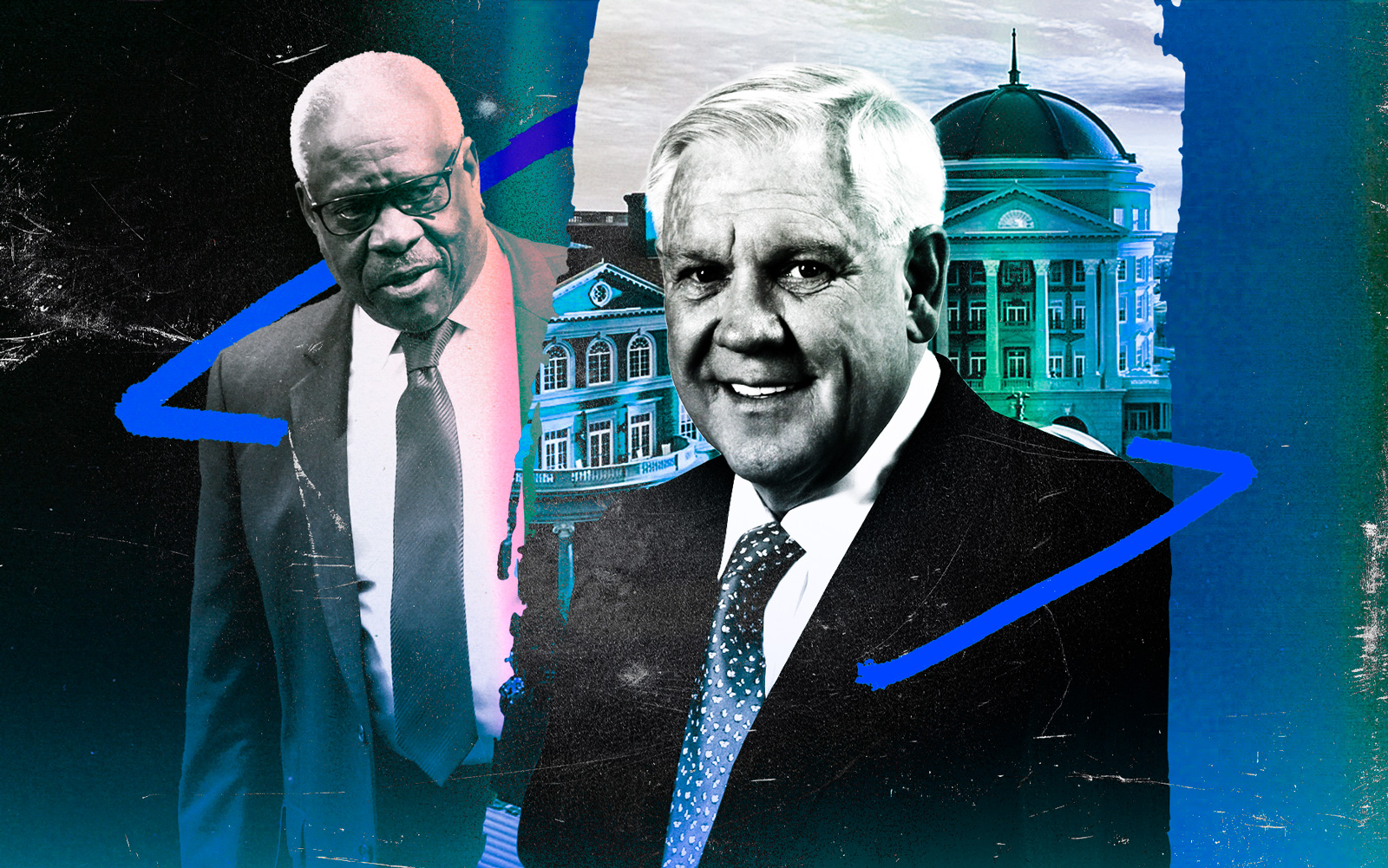A Supreme Court case from nearly 20 years ago overlaps with Justice Clarence Thomas’ gratifying friendship with real estate titan Harlan Crow.
In 2005, the Supreme Court declined to hear an appeal from an architecture firm that wanted more than $25 million from Crow Holdings subsidiary Trammell Crow Residential, alleging it wrongfully reused the firm’s copyrighted designs, Bloomberg reported.
Thomas, who was appointed to the High Court in 1991, had been close friends with Crow for at least eight years when Womack+Hampton Architects’ petition reached the court in 2004.
Dallas billionaire Harlan Crow was CEO of Crow Holdings at the time — an entity separate from his father Trammell Crow’s namesake company. Crow Holdings manages the family’s capital and had less than a 50 percent stake in apartment developer Trammell Crow Residential during the court proceedings, and Crow Holdings says it had no controlling interest in the company at that point, the outlet reported.
“At the time of this case, Trammell Crow Residential operated completely independently of Crow Holdings with a separate management team and its own independent operations,” Crow’s office told the outlet. “Crow Holdings had a minority interest in the parties involved in this case and therefore no control of any of these entities.”
Some argue that Thomas should have abstained from the case, despite Harlan Crow’s disassociation from Trammell Crow Residential.
Justices are disqualified from certain cases in which a close friend or relative stand to financially gain from the outcome. But for the most part, judges must decide themselves if there’s a conflict of interest.
When Womack+Hampton petitioned the Supreme Court, the case showed up under the name “Metric Holdings Limited Partnership,” a company described in court filings as a “Trammell Crow Entity.” Thomas should have been “hypervigilant to the prospect of a Crow interest showing up on the Court’s docket,” according to Stephen Gillers, a judicial ethics expert at New York University School of Law.
Given Thomas and Crow’s close friendship and the many subsidiaries that could’ve served as an interest for Crow, Thomas should have rescued himself from the case without question, Gillers said.
—Quinn Donoghue
Read more



